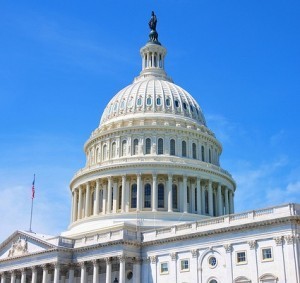Why the “Fiscal Cliff” Matters
With the election finally behind us, Americans have a new imminent concern ahead of them: the pending “fiscal cliff”. The media’s been throwing around the term, stirring mostly a lot of confusion, but the fact is, this issue could have tremendous impact on our pocketbooks.Here’s what you need to know.
“Fiscal Cliff” Explained
Our federal government faces a Dec. 31 deadline to decide on the economic future of the country. It sounds like hyperbole but it’s not. The fiscal cliff, as it’s been dubbed, is the date by which the Budget Control Act of 2011 will go into effect. The act is a combination of expiring tax cuts and cuts to government spending that will begin Jan. 1. It’s enough to take a “bite” out of GDP and spike unemployment according to Bankrate.com Senior Financial Analyst Greg McBride.
Learn More: Obama’s Win and Your Money
According to a report by the nonpartisan Congressional Budget Office, while that bite would have the immediate effect of reducing the deficit by $560 billion, it would cut GDP by four percentage points in 2013 and cost the economy nearly two million jobs – sending the U.S. back into recession.
Its Effects On You
“If we go into a recession in 2013, unemployment would rise, income and worth would go down,” says McBride. “If we don’t see substantive progress to avert it by Thanksgiving, financial markets and consumers will grow increasing y nervous and you’ll soon begin seeing negative effects.” McBride says that as we enter the critical holiday shopping season, businesses are already holding back on investing and hiring because of the threat. He predicts that, as we get closer the end of the year, companies will continue to hoard cash. Likewise, official projections from the CBO say anxious consumers are likely to hold back on spending, which could lead to a half-percent reduction in GDP for the second half of 2012.
Get Your House In Order
Averting the fiscal cliff will happen only if our elected and newly re-elected officials can compromise. In the meantime, Americans should hope for the best, while planning for the worst. “I would caution people against preemptive investment moves because you never know what will happen,” warns McBride. His suggestion: Build an emergency savings account that can last at least six months in case of disaster, but also hold onto cash in a savings account for investment opportunities, in case crisis is averted and the economy grows.
Photo Courtesy, Glyn Lowe Photoworks.




